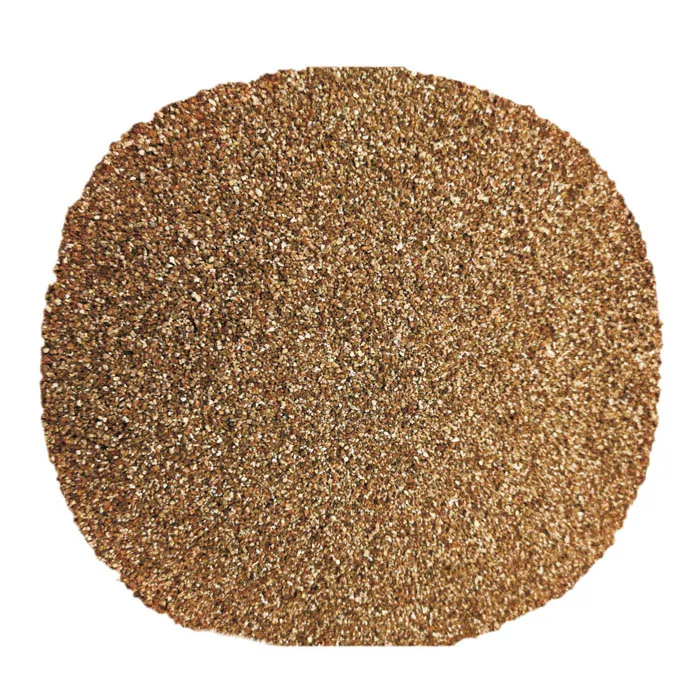Geg . 22, 2025 14:18 Grįžti į sąrašą
Vermiculite: A Versatile Mineral for Agriculture, Construction, And More
Vermikulitas is a naturally occurring mineral that expands when heated, resulting in a lightweight, fire-resistant, and absorbent material. Its unique properties make it a popular choice across various industries—from agriculture and horticulture to construction and packaging. Whether you're a large-scale grower, a contractor, or a DIY enthusiast, understanding the uses and benefits of vermiculite can help you make informed choices. For those seeking large quantities, there are numerous options for wholesale vermiculite, which offers both value and convenience.

What Is Vermiculite?
Vermikulitas is a hydrous phyllosilicate mineral that resembles mica in appearance. When subjected to high heat (a process called exfoliation), it expands up to 30 times its original size, transforming into a lightweight, accordion-shaped material. This expanded form is what we commonly refer to as vermiculite, and it's the form most frequently used in commercial and residential applications.
Key Properties of Vermiculite
The popularity of vermiculite is largely due to its unique properties:
Lightweight: Easy to handle and transport.
Absorbent: Retains water and nutrients efficiently.
Insulating: Excellent thermal and sound insulation.
Fire-resistant: Inorganic and non-combustible.
Chemically Stable: Non-reactive and pH neutral.
Non-toxic: Safe for use in homes and gardens.
These attributes make vermiculite suitable for a wide range of applications, especially in areas where safety, efficiency, and environmental friendliness are priorities.
Uses of Vermiculite
1. Agriculture and Horticulture
One of the most common uses of vermiculite is in gardening and agriculture. It helps improve soil aeration and moisture retention, promoting healthy root growth in plants.
Seed starting: Provides a sterile, moisture-retentive medium for seedlings.
Soil conditioning: Improves water retention in sandy soils and aeration in clay-heavy soils.
Hydroponics: Used as a soilless growing medium.
2. Construction
In construction, vermiculite is valued for its insulating and fireproofing properties.
Loose-fill insulation: Used in attics and wall cavities.
Fireproofing spray: Applied to structural steel in commercial buildings.
Lightweight concrete: Mixed into concrete for insulating roof decks and floors.
3. Industrial Applications
Packaging: Acts as a cushion and absorbent for transporting hazardous materials.
Friction products: Used in brake linings and gaskets.
Refractory materials: Used in furnaces and kilns due to its heat resistance.
Why Buy Wholesale Vermiculite?
Purchasing wholesale vermiculite is a smart decision for businesses and individuals who require bulk quantities. Here are some key advantages:
Cost-effectiveness: Buying in bulk significantly reduces the per-unit cost.
Consistency: Large orders ensure product uniformity, which is crucial in applications like agriculture and construction.
Convenience: One-time bulk orders save time and simplify logistics.
Custom Sizing: Many wholesale vermiculite suppliers offer options in various particle sizes to suit specific applications.
Whether you're a commercial grower or a contractor, sourcing vermiculite for sale in large volumes ensures you always have material on hand when needed.
Grades and Sizes of Vermiculite
Vermikulitas is available in various grades depending on particle size:
Fine Grade: Ideal for seed germination and hydroponics.
Medium Grade: Commonly used in potting mixes and soil amendments.
Coarse Grade: Suitable for industrial insulation and packaging.
Choosing the right grade depends on your specific use case. For example, medium-grade vermiculite is best for potted plants, while coarse grade is perfect for insulation or fireproofing applications.
Finding Vermiculite for Sale
If you're looking for vermiculite for sale, there are several places to explore:
Agricultural Supply Stores: Offer smaller bags suitable for home gardeners.
Construction Material Distributors: Typically carry fire-rated vermiculite for insulation and concrete use.
Wholesale Suppliers: Companies that specialize in industrial minerals often provide bulk delivery and competitive pricing for large orders.
When purchasing, ensure the supplier provides:
Material safety data sheets (MSDS)
Particle size options
Clear delivery timelines
Volume discounts
Safety Considerations
While vermiculite itself is safe and non-toxic, it’s important to source it from reputable suppliers. In the past, some vermiculite deposits (notably in Libby, Montana) were contaminated with asbestos. Today, regulations ensure modern vermiculite products are thoroughly tested for safety.
Always use protective equipment (such as masks or gloves) when handling large volumes to avoid inhaling dust.
Environmental Impact
Vermikulitas is an environmentally friendly material:
Sustainable: Naturally occurring and mined responsibly.
Reusable: Can often be reused in soil or insulation after its initial use.
Non-polluting: Does not leach harmful substances into the environment.
Choosing vermiculite over synthetic or chemical alternatives supports greener practices in gardening, farming, and building.
Vermiculite FAQs
Q1: What is the difference between vermiculite and perlite?
A: Both are used in horticulture, but vermiculite retains more moisture, making it better for plants needing consistent hydration. Perlite improves drainage.
Q2: Is vermiculite safe for use around food crops?
A: Yes, vermiculite is non-toxic and safe for edible plants, especially when sourced from verified, asbestos-free suppliers.
Q3: How do I store wholesale vermiculite?
A: Keep it in a dry, covered area to prevent moisture absorption. Large bags or totes should be sealed when not in use.
Q4: Can vermiculite be recycled or reused?
A: Yes, particularly in gardening. It can be reused in potting mixes or composted unless contaminated with chemicals.
Q5: Where can I find reliable vermiculite for sale in bulk?
A: Trusted options include industrial mineral suppliers, agricultural co-ops, and specialty online retailers offering wholesale vermiculite with customizable sizes and volumes.
Whether you're growing a greenhouse full of vegetables or insulating a building, vermiculite offers a safe, efficient, and versatile solution. With options ranging from garden-ready bags to industrial-grade bulk orders, the market for vermiculite for sale is diverse and accessible. By choosing the right product and supplier—especially
-
Leading Carbon Petroleum Coke Exporters | High Purity & Global Supply
žiniosAug.30,2025
-
High-Performance Tundish Dry Vibrator for Steel Casting
žiniosAug.29,2025
-
Premium Vermiculite in Soil Exporters | Global Supplier
žiniosAug.28,2025
-
Zonolite vermiculite historical uses in construction
žiniosAug.22,2025
-
Pink bauxite rarity and collector value
žiniosAug.22,2025
-
Heat refractory material thermal conductivity characteristics
žiniosAug.22,2025
